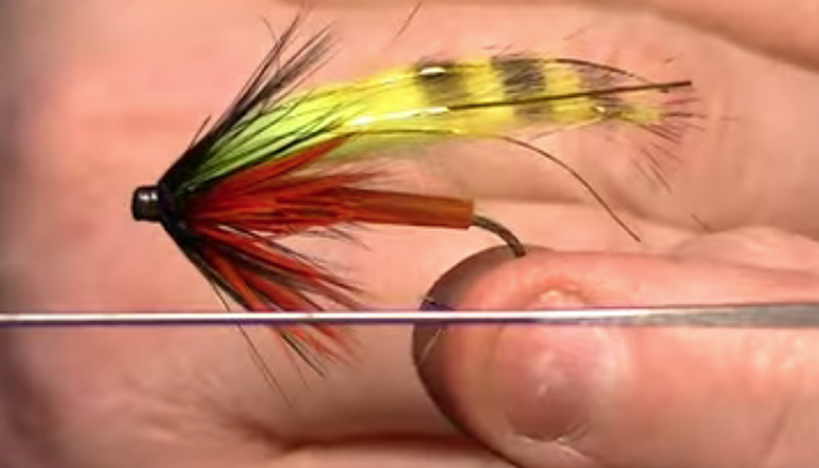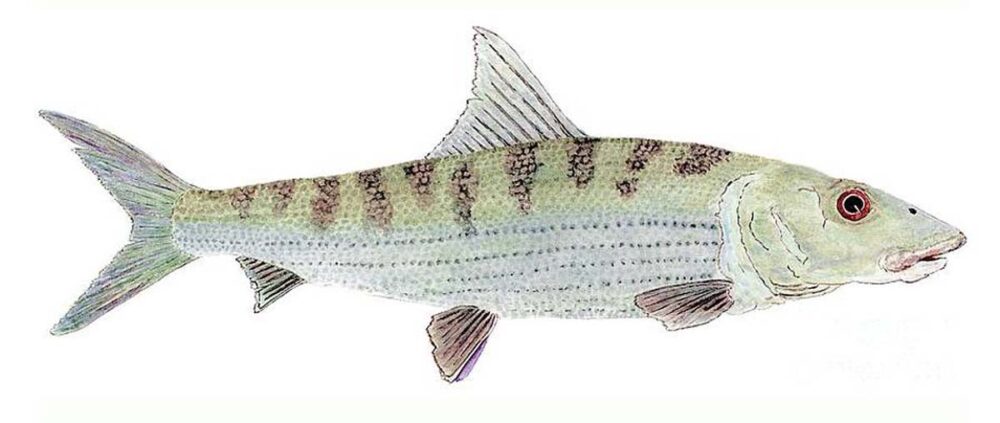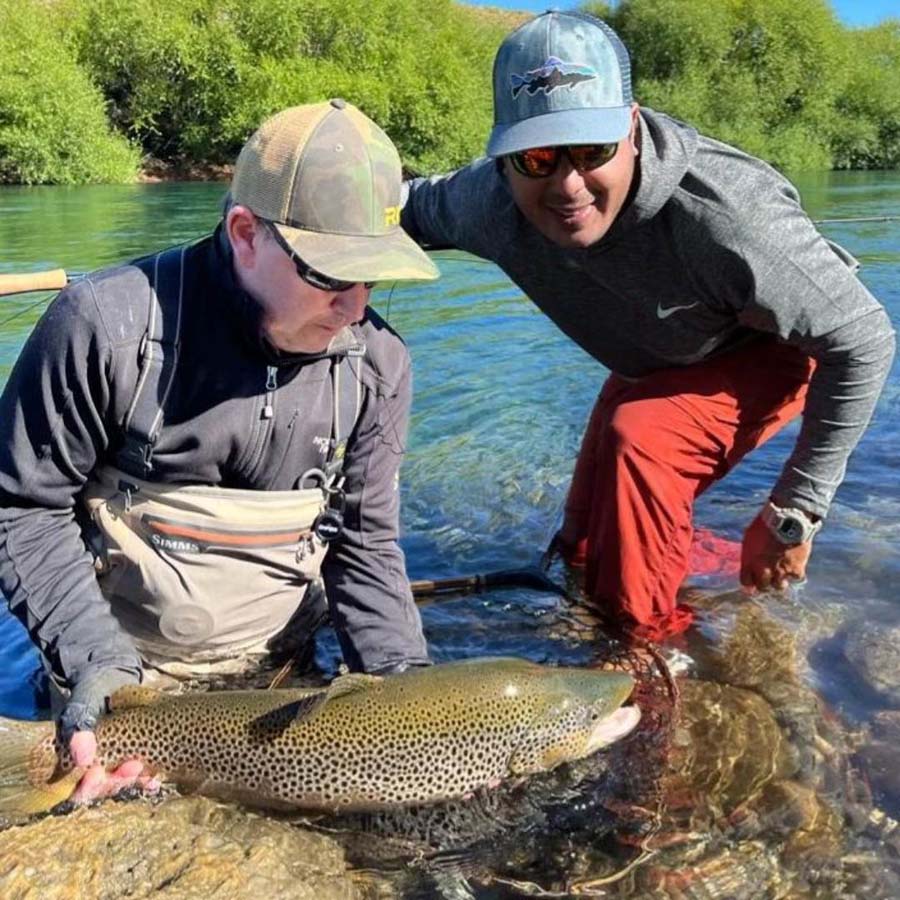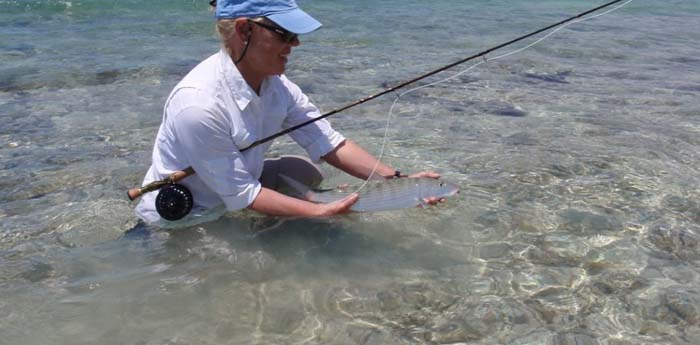 Ruben Martin’s Orange Tube Shrimp Fly
Ruben Martin’s Orange Tube Shrimp Fly

Skip Clement, New Zealand
By Skip Clement ~ Fly Tying Instructions by Ruben Martin
A finned visitor to a saltwater flat anywhere in the world would not believe their luck when handed a menu with this single entree, shrimp special – eat one, second one free.
Tie a shrimp fly with the proper silhouette and swim it with natural aquatic motor tendencies, and you could expect an eat.
There are dozens of shrimp patterns with winning credits, like Borski’s No-Name Shrimp fly, Veverka Mantis Shrimp, Bonefish Bitters, Crazy Charlie, and many more.

Albula vulpes – Bonefish illustration by Thom Glace.
As many know, Ruben Martin has been fly fishing for decades. It is internationally known as one of the world’s most innovative and prolific fly tyers of the 20th and so far in the 21st century. His techniques, attention to detail, proportions, material choices, and especially his ability to identify tying breakthroughs or create them continue to attract new and dedicated fly tyers worldwide to his podcast tutorials. (Click here … )
Martin remains one of the most willing celebrity status tyers and fly casting instructors to share anything he knows with any angler. He is genuinely happy to do so.
Tube flies are almost 100% preferred when angling for billfish
Also, in Europe and especially Scandinavia, tube flies are more productive than hook-tied flies in many situations other than just being accepted as a better angling choice pursuing Atlantic salmon, Pacific salmons, and steelhead.

Permit illustration by award-winning watercolorist Thom Glace. Visit his site here . . .
Nymphs or wet flies, emergers, streamers, and dry flies
Those additional acceptances of tube flies are solely because of better angling results. Tube flies are now common choices in Europe when angling for brown trout, grayling, pike, sea run trout, carp, bass, and varieties of panfish.
Tube flies are not a panacea
- Not having tube flies ‘in your wallet’ is like only having ketchup as the dip for shrimp hors d’oeuvres at a cocktail party.
- The list of why tube flies can be Googled ad nauseum. Here is one . . .
- Another tribute to Martin is showing us how to up the success of traditional flies like the Royal Wulff, by converting them to tubes.

Ruben Martin, reconocido atador de moscas a nivel mundial, instructor de casteo y conservacionista con el guía Facundo Pomponio, sosteniendo una hermosa trucha marron capturada usando una mosca tubo atada esa misma mañana. Foto de Martin.
NOTE: Another classic fly, the Woolly Bugger, converts to a tube with better-than-expected results. More on that in another Ruben Martin collaborative post.
Recipe:
TUBE: Pro Tube Flexi Tube 40-10 – Transparent. Choose weight – optional
EYES: Burn from mono 0.80mm [+/- 1/32]
BODY: Orange Arctic Fox
Polar Chenille FL. shell pink
Saddle Hackle FL. shell pink
PLASTIC DISK: Choose size and color ~ Cone disc
SILI LEGS: Barred Shrimp Pink







